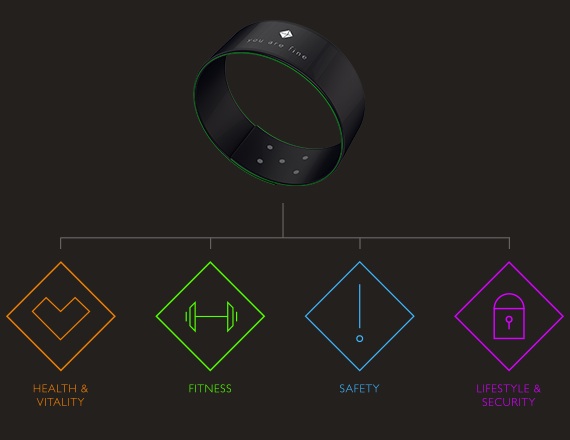 During the past month, at least five startups have launched new Indiegogo campaigns to crowdfund their digital health startups.
During the past month, at least five startups have launched new Indiegogo campaigns to crowdfund their digital health startups.
Last month’s set of projects included Fitnotix, a company that is developing a web and mobile platform to help consumers incorporate fitness into their daily lives; CureCrowd, a platform that wants to crowdsource health information from patients; and iFocusBand, a wearable brain training system that fits into an existing hat or headband and contains three EEG sensors.
This month, companies are crowdfunding products that include a mobile system to help prevent heart attacks or strokes and a texting service for people with diabetes.
This company claims its posture correcting device will train users to stand straighter in just a few weeks. The small device attaches to the user’s lower back and gently vibrates when the user slouches. UpRight also has an embedded accelerometer that takes note of the user’s position and can determine whether the user is standing, sitting, walking, or running. Data is sent to a connected app via Bluetooth, which offers users a training program based on their height, age, and other factors. The app helps users set goals, review analytics about their posture, and connect with other UpRight users.
UpRight's campaign started yesterday and has raised $7,899 of its $70,000 goal.
Posture correcting company Lumo Body Tech crowdfunded its latest device, called Lumo Lift, in January 2014. The small device is meant to be worn on the upper half of the user’s shirt and sends alerts to the user’s smartphone when they slouch.
Because doctor’s office visits tend to be infrequent, InstaMD wants to provide users with a way to give their physicians an up-to-date view of their health. The company’s product, a headset, lets a user connect any stethoscope to record sounds of his or her heart, lungs, and GI tract. The headset connects to an eVisit web portal and mobile app so that this information can be saved. Users can also use the portal to video conference with their physician, screenshare images, and schedule exams. The company aims to get FDA 510(k) clearance in time to ship the device by October 2014. The campaign launched 5 days ago and has raised $376 out of a $60,000 goal.
Although many products are already on the market that offer smartphone connected glucometers, including Sanofi’s iBGStar and LabStyle’s Dario, Traq Me aims to provide people with reminders to measure blood sugar and record these metrics via text message. There are over 10 million people with diabetes in the US alone who do not own a smartphone but have a normal mobile phone, according to Traq Me’s website. Traq Me wants to use the funds from the campaign to setup of a server, launch a pilot product, and make Traq Me available to those who speak Spanish. In the first six days, Traq Me raised $3,040 of its $5,000 goal.
While there are many wristworn wearables on the market, Vidameter’s pitch is that their device offers a holistic approach to well-being. The product monitors fitness by measuring distance, calories burned, and heart rate; safety by tracking location, potential risks for sleep apnea, and automatic emergency alerts; health by gathering data on skin temperature, blood oxygen saturation, electrocardiography, and stress levels; and lifestyle choices by offering a barcode scanner, gesture control, and a method for payment. Users can use the touchscreen menu on the wearable to scroll through these options.
The campaign launched on May 3rd, and so far Vidameter has raised $9,311 of its $1 million goal.
LifeKeeper offers users a system to track their health, but the company says the product pays special attention to monitoring risk of heart attack and stroke. A user wears the LifeKeeper device, attached to a band, around his or her upper abdomen. Data from the device is sent to the user's smartphone. The companion app provides context with personal and historical data while tracking activity and can send alerts when it detects signs of angina pectoris, arrhythmia, tachycardia, bradycardia and stress.
The campaign launched over a month ago, and has raised $9,311 of its $60,000 goal.


















